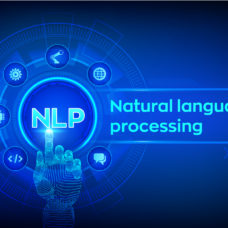Unlike Google that seeks to develop human-like robotic translation, Amazon is focusing on accents, and it has a patented technology for that.
Evolution shows that social mimicry is a major component of our survival mechanism, pushing us to belong to groups.
We’re all subject to the chameleon effect, this tendency to unconsciously mirror what “others” do, and one of its most apparent manifestations is language and accents.
Members of the same social group tend to mimic the speech patterns of others, leading to the rise of different regional accents within the same language.
In the Southern United States, for example, English has developed in contact with Spanish, leading speakers on the two sides of the borders to pick up dialectal elements Like in Puerto Rico, the mix was so deep that “Spanglish” appeared.
On both sides of the pond, in the United States and Britain, people speak English, yet with very distinctive accents that, in some cases, could be mutually unintelligible.
The phenomenon is also common with foreign language learners who take accent elements from their mother tongue, resulting in colorful pronunciations, and some speech intelligibility problems.
Nothing Will be Lost in Accent Translation
Accents are one of the results of mob mentality and the linguistic aspect of herd behavior, just like languages were an evolutionary product that begun a long time ago.
Google is leading the way in translation technology, and its Neural Machine Translation software is getting better over time, slowly approaching human-level accuracy. Microsoft might be the close second in that regard.
On the other side, there’s Amazon, which doesn’t want to retread Google and Microsoft’s ground. Instead, the company is seeking to forge its own path by getting on with accents rather than with languages.
Amazon has been working on accent translation technology for which it has filed a patent (December 21, 2016), which was approved in June.
As reported by PatentYogi, a patent services provider, Amazon has patented an audio real-time accent translator.
The system works using a “sample sorter” that detects the accent of a speaker before it translates the audio into the listener’s accent.
This marks a big step ahead for machine learning-powered Natural Language Processing (NLP), one of Amazon’s biggest research areas.
Amazon, mainly through its technological arm, Amazon Technologies, Inc., has over 7,000 thousand patents, including this one, waiting for development.
Read More: Latest Patent Means Amazon Warehouse can Launch Drones to Recharge Your Car
The system will aid in the elimination of communication barriers, both on a regional and global scale.
Right off the bat, if this accent translator sees the light of day, it’ll be a valuable tool for support agents who have to deal with millions of calls every day from people from different places and with different accents.
Travelers also can benefit from such a system when exploring local and international destinations.
Here’s the accent translator’s PDF patent file, for those who understand patentese.


















Comments (0)
Least Recent